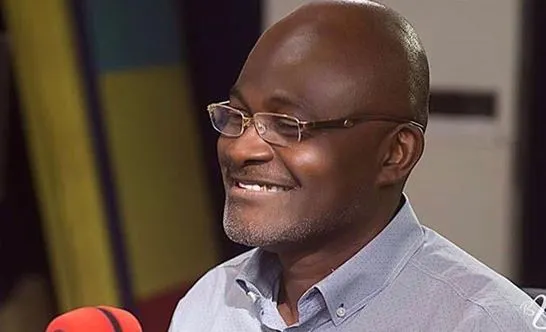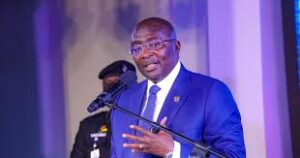Zongo Youth Group Advises Ken Agyapong to Steer Clear of Their Communities During Campaign

The Zongo Youth Movement, a Muslim advocacy organization, has issued a firm statement urging New Patriotic Party (NPP) flagbearer hopeful Kennedy Agyapong to keep his presidential campaign activities out of Zongo and Muslim communities, following controversial remarks allegedly made by a member of his campaign team.
The group’s concerns are rooted in statements attributed to Dr. Stephen Amoah, popularly known as Sticka, a known ally of Kennedy Agyapong. Dr. Amoah reportedly suggested that the NPP’s defeat in the 2024 general elections was due in part to the Islamic faith of former Vice President Dr. Mahamudu Bawumia, who led the party into that election.
Speaking to Citi News, Abdullai Ali, the Public Relations Officer of the Zongo Youth Movement, described the remarks as deeply offensive, divisive, and a dangerous deviation from Ghana’s long-standing tradition of religious tolerance and unity. He emphasized that such rhetoric undermines peaceful coexistence and disrespects Ghana’s Muslim community.
“We are appalled by the attempt to frame an electoral loss around a candidate’s religion,” Ali said. “This is not just a political miscalculation—it is a blatant attack on our values as a nation that prides itself on religious harmony.”
The group is demanding a public apology from both Dr. Amoah and Kennedy Agyapong, arguing that failure to address the issue properly sends a message of indifference or complicity.
Ali pointed out that no member of Kennedy Agyapong’s team had publicly distanced the campaign from Dr. Amoah’s controversial comments. Instead, he said, some surrogates appeared on media platforms defending the remarks with “distorted interpretations and questionable data.”
“It is not unreasonable to associate these comments with Kennedy Agyapong’s campaign,” Ali continued. “If he or his team had promptly issued a disavowal or condemnation, the responsibility would lie solely with Dr. Amoah. However, the continued silence and even subtle endorsement from campaign affiliates raise serious concerns.”
The group also warned that allowing such sentiments to go unchallenged could sow seeds of division at a time when the country needs healing and unity following a politically and economically turbulent period.
As a result, the Zongo Youth Movement has called on Kennedy Agyapong to refrain from bringing his campaign to predominantly Muslim communities until the matter is addressed with the seriousness it deserves.
“We are not against anyone campaigning in Zongo communities,” Ali clarified. “But we demand respect. If you or your representatives insult our faith and make no effort to correct the narrative, then you should not expect our doors to be open to your campaign.”
The incident has sparked broader conversations about identity politics and the role of religion in Ghanaian elections. Political observers have cautioned that injecting religion into political discourse could lead to long-term societal divisions if not addressed swiftly.
Kennedy Agyapong, a sitting Member of Parliament and a prominent contender in the NPP’s upcoming presidential primaries, has not yet publicly commented on the controversy. His silence continues to fuel criticism from sections of the public who believe that his response—or lack thereof—will be an important indicator of his leadership outlook.
The Zongo Youth Movement’s statement serves as both a warning and a call to action: Ghana’s political leaders, they argue, must lead with integrity, promote inclusivity, and ensure that their campaigns do not exploit sensitive religious or ethnic differences for electoral gain.
As the NPP prepares for its presidential primaries, this incident may shape how candidates engage with key voting blocs and test their commitment to Ghana’s democratic and multicultural values.






